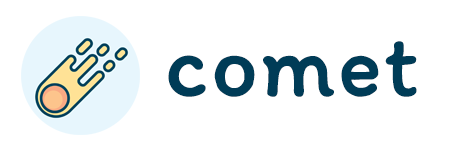https://github.com/chiiya/comet
☄️ DL agnostic testing and documentation for RESTful APIs
https://github.com/chiiya/comet
api api-blueprint comet documentation open-api raml rest swagger testing
Last synced: 6 months ago
JSON representation
☄️ DL agnostic testing and documentation for RESTful APIs
- Host: GitHub
- URL: https://github.com/chiiya/comet
- Owner: chiiya
- License: mit
- Archived: true
- Created: 2018-12-17T14:18:46.000Z (over 6 years ago)
- Default Branch: master
- Last Pushed: 2020-10-15T14:05:35.000Z (over 4 years ago)
- Last Synced: 2025-01-11T02:12:30.432Z (6 months ago)
- Topics: api, api-blueprint, comet, documentation, open-api, raml, rest, swagger, testing
- Language: TypeScript
- Homepage:
- Size: 2.27 MB
- Stars: 0
- Watchers: 2
- Forks: 0
- Open Issues: 23
-
Metadata Files:
- Readme: README.md
- License: LICENSE
Awesome Lists containing this project
README

Automated testing and documentation for RESTful APIs.
**Notice:** This package is still in early development and not intended for usage. Check out
the [roadmap](https://changemap.co/chiiya/comet/) for more information.
To test parser functionality, call:
```bash
npx comet make:documentation examples/(blueprint.apib)|(openapi.yml)|(raml/api.raml)
```
This will create a `result.json` file with the resulting model tree.
## Index
> Usage .....................................................................
> Configuration .............................................................
> Examples ..................................................................
> Setup .....................................................................
## Usage
Currently, the following commands are available:
#### Make Schemas
`comet make:schemas` will generate valid JSON-Schema definitions for all requests and responses.
#### Make Tests
`comet make:tests` will generate integration tests for all endpoints and parameter combinations for the Laravel framework.
#### Make Postman
`comet make:postman` will generate a Postman Collection for your API.
#### Make Documentation
`comet make:documentation` will generate an API documentation.
For usage, see the [core package](https://github.com/chiiya/comet/tree/master/packages/core).
## Configuration
Comet can be configured in many ways:
- `comet` key in your `package.json`
- `.cometrc` in JSON or YAML format
- `.cometrc.json`
- `.cometrc.yml`
- `.cometrc.toml`
The default configuration (in `.cometrc.toml`) looks like the following:
```toml
[default]
# No default adapter configured. Instead, we will try to auto-detect the input format.
# adapter = "@comet-cli/adapter-openapi"
[adapters.api-blueprint]
ungroup_root = false # Will un-group resource groups in API Blueprint named `Root`
[plugins.postman]
output = "./"
group_by = "resources" # Other options are: `tags`, `trie`
flatten = false # Flatten first level of trie
[plugins.json-schemas]
output = "./"
[plugins.tests-laravel]
output = "./"
base_url = "/api" # Base URL prepended to resources for test calls
[plugins.documentation]
output = "./"
group_by = "resources" # Other options are: `tags`, `trie`
flatten = false # Flatten first level of trie
theme = "@comet-cli/theme-nucleus"
# template = "src/index.template.html" - Custom base template
# css = "src/css/main.css" - Custom, additional CSS
[plugins.documentation.data]
title = "API Reference"
# description = "API Reference for XYZ" - Custom description metadata
asset_src = "" # Change to reflect your asset file source path, e.g. "/"
```
## Examples
Example specifications in OpenAPI, RAML and API Blueprint format with instructions for compilation can be found under the
`examples` folder. For an example laravel project check out [comet-demo](https://github.com/chiiya/comet-demo). You can
find the generated test cases in the `tests/Comet` folder.
## About
Comet takes an API specification in any input format, converts it to its own internal API model, and then executes a bunch of
tasks based on that model. The advantages are obvious: we have a model that is optimized for automated processing
(information is always in exactly one place, everything is expanded, etc.), plus we can write code once and support all
input formats. All commands in **comet** have the same structure:

Every command resolves its adapter and plugins at runtime from the user configuration, executes the adapter to transform
the input into our own model and then executes a list of plugins, in order.
Type definitions for both the internal API model as well as the interfaces for adapters and plugins are available
in the `@comet-cli/types` package.
## Setup
Comet is set up as a monorepo using lerna and yarn workspaces.
### Requirements
```bash
node # >=8.0.0
yarn
```
### Installation
```bash
$ git clone https://github.com/chiiya/comet
$ cd comet
$ make bootstrap
```